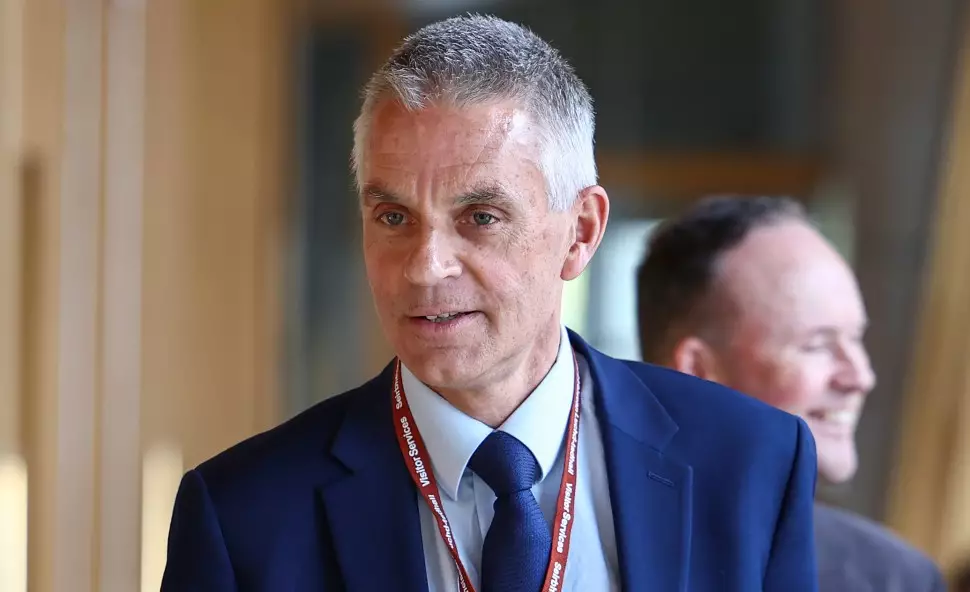In a bold move to propel the issue of sustainability to the forefront of public consciousness, BBC Director General Tim Davie is set to deliver a compelling address at the upcoming Climate Creatives event. Scheduled for this Wednesday, the event aims to unite creative professionals from various sectors within the media to explore innovative ways of tackling climate-related topics. This initiative represents a decisive moment for Davie and the BBC, as they attempt to leverage their influential platform in addressing one of the most pressing issues of our time.
Davie’s impending speech will undoubtedly articulate the notion that sustainability isn’t merely a marketing ploy for public service broadcasters, but rather an inherent responsibility that should permeate all facets of media production. “We are at a crucial juncture,” he will assert, emphasizing the necessity of embedding environmental concerns into the fabric of modern storytelling. The call to action extends beyond traditional documentaries into the realms of entertainment, drama, and children’s programming—demonstrating a holistic approach to incorporating sustainability into various genres.
The public’s growing interest in climate change provides a fertile ground for programming that not only informs but also inspires action. Davie recognizes this as a “huge opportunity” for the BBC to innovate content that resonates with viewers yet brings significant change. This enthusiasm is mirrored in the industry at large, as network executives and production teams alike begin to explore how climate narratives can be woven seamlessly into the broader tapestry of television and film.
The challenge, however, is to conceive creative solutions that transcend the typical bounds of educational content. It’s a clarion call for diversity in storytelling that reflects the urgent realities of climate change without sacrificing the entertainment value that engages audiences. Davie’s insistence that sustainability must be a priority for the upcoming programming year reflects this ambition, as it seeks to infuse an ecological consciousness into the mainstream.
One of the most crucial aspects of Davie’s message is the appeal for collaboration across the television sector. He emphasizes the shared responsibility that independent producers and network commissioners have to facilitate broader conversations about sustainability. “We have got a voice,” Davie notes, highlighting how the collective creativity of the industry can be harnessed to foster more informed discussions about environmental issues.
As part of this collaborative effort, Climate Creatives extends its reach not solely to BBC staff but to an array of participants from ITVs, Channel 4, UKTV, and beyond, establishing a communal space for dialogue. Notable figures in the industry, including naturalist Chris Packham and film producer Rebecca O’Brien, will join this rich tapestry of voices contributing to an elevated discourse regarding climate change within film and television.
The importance of media in climate activism cannot be overstated. Film and television wield significant influence over societal norms and can help shape public perception around critical issues such as climate change. As evidenced by events like Climate Week in New York, the synergy between art and activism can mobilize audiences and inspire change on a broader scale.
Davie’s participation in Climate Creatives underscores the BBC’s aim to foster a sustainable future—not just through carbon reduction but also by enhancing on-screen narratives. This reflects a burgeoning awareness within the media sector, recognizing the dual responsibility of reducing their carbon footprint while simultaneously using their platforms to advocate for environmental awareness.
The upcoming Climate Creatives event heralds a new chapter for the BBC and the wider media landscape, challenging all stakeholders to embrace sustainability at an institutional level. By highlighting the necessity of integrating climate conversation into programming, Tim Davie is leading a charge that could significantly reshape the narrative in entertainment and beyond.
As audiences increasingly demand a conscious approach to storytelling, it is clear that the media has not only the opportunity but the obligation to respond. The synergy of creativity and activism might just be the key to inspiring real change in how we relate to the planet and one another in a time of climate crisis. The future of sustainable broadcasting is not only an ethical mandate—it is an inspiring journey waiting to unfold.


Leave a Reply